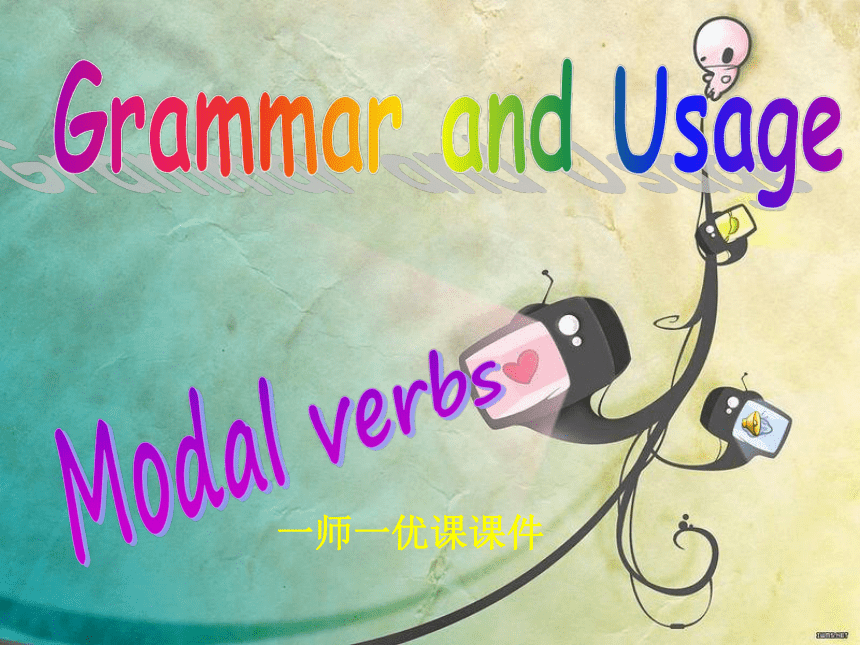
课件50张PPT。 Grammar and UsageModal verbs一师一优课课件 We use modal verbs to talk about:1. Ability (能力) 2. Obligation (义务) 3. Certainty (可能性) 4. Permission (允许)一、functionsWe also use modal verbs to:5. Make requests(提出请求) 6. Make suggestions(提出建议) 7. Make offers(提供帮助) 8. Give advice(提出意见)1.Ability (能力):Liu Xiang can run the 110m hurdle race within 13 seconds.can/could:1. can 一般表示与生俱来的能力或者一种客观可能性,还可以表示请求和允许 。Learning English _____ be difficult.canMan can not live without air. _____ I use your bike?Cancan/could:2.在疑问句中,用could可表示请求,语气较委婉。— ____I have the television on? — Yes, you _____. / No, you __CouldHe asks if he ____ smoke here.couldcan/maycan’t/I’m afraid notcan/could:3.表示惊异、怀疑、不相信的态度。(主要用在否定句、疑问句或惊叹句中) He’s such a nice person that he _____ commit the crime. can’t你怎么会如此地粗心! How can you be so careless! Can this be true? can/could:4. can never/can’t……too表示“无论怎样…也不过分”,“越…越好” 。你过马路的时候再小心也不为过。 You can’t be too careful while crossing the road. Attention:can/be able to区别:Edison always wondered why hens could hatch (孵) chickens while he was not able to.Question: Are the two modal verbs interchangeable (互换) ? If not, why?can表示与生俱来的能力或一种客观可能,而be able to更加强调通过后天的学习和努力获得的能力,或者在某个客观的场合和背景下,能做到的事情。Attention:can/be able to区别:A big fire broke out in ABC hotel yesterday. Luckily, everyone _____ run out of the building.was able to2. She _____ speak both English and French.canI’m so tired! I have to do the training for at least 10 hours a day! 2.Obligation (义务):…yet he must work hard to win the gold medal.Although Liu Xiang is so gifted in hurdle race…Attention:advisabilitynecessityought to/shouldhave tomustYour mother brings you up and takes good care of you, so when she is old, you ___ look after her in return. A.can B.may C.have to D.must Shi Dongpeng might win a medal at the Olympic Games.Although the chance of winning a medal is small, I’ll try my best! 3.Certainty (可能性) :Attention:very uncertainalmost certainmightshouldmustmaycouldought towill1.He _____ be at home.2.He _____ be at home, for he just called me from his home 15 seconds ago.A.may B.might C.must A.may B.might C.must (can)must 表示肯定的猜测,译为“一定”,不能用于否定句或疑问句。 This must be your pen. He must be doing his homework now. He must have arrived already.mustmust2. 表示“坚持、硬要、偏偏”(常用于固定句型:if you must do sth. 如果你非得要做某事-让人不愉快的事) 如果你硬要走,那就悄悄离开。If you must leave, do it quietly.Attention:—They___ be doing the experiment in the lab. —Why? —Because the lights are still burning.A.could B.can C.must D.would 4.Permission (允许):May I eat KFC if I win the gold medal?may/might:1. 表示许可。表示请求、允许时,might比may的语气更委婉一些。— Might/May I use your computer? — Yes, you can. /N ... ...
~~ 您好,已阅读到文档的结尾了 ~~